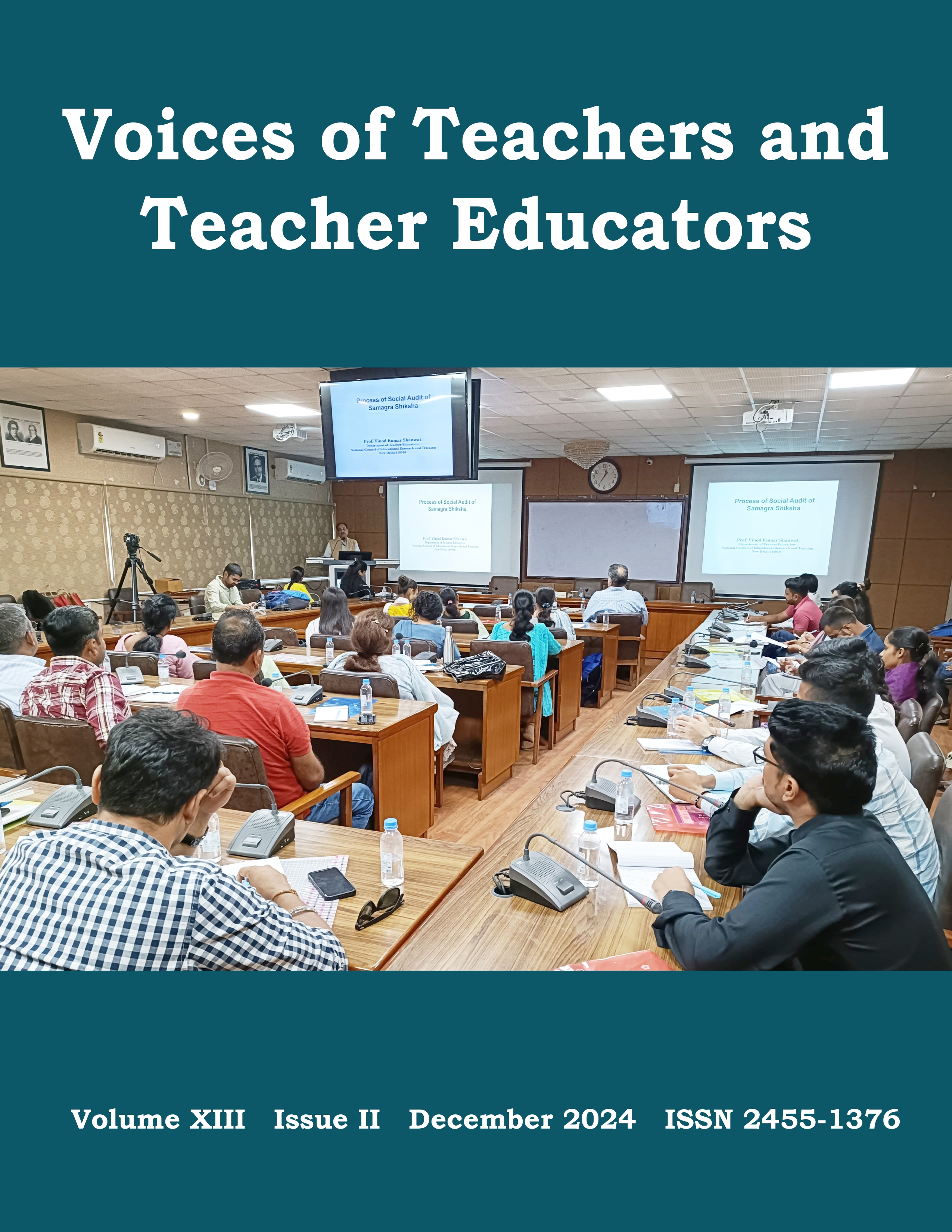Published 2024-12-31
Keywords
- Experiential learning,
- perception,
- hands-on experiences,
- science education
How to Cite
Abstract
Experiential learning is an educational approach that facilitates the understanding and application of scientific concepts by integrating theoretical knowledge with practical, handson experiences. This study explores the resources, perceptions, practices and challenges involved in planning and implementing experiential learning in secondary science education in government schools in the Mayurbhanj district of Odisha. Using a mixed-method approach, data were collected through surveys from both quantitative and qualitative perspectives. The findings indicate a positive inclination towards experiential learning among all respondents. The facilitators perceived that experiential learning improves engagement, understanding, retention and the practical application of science beyond academics. Learners found it motivating and effective in making abstract concepts concrete through hands-on experiences. While there is a strong emphasis on incorporating effective practices, such as handson activities and real-world applications, notable gaps exist in collaboration, reflective opportunities and addressing diverse needs of learners. However, over-experiential learning lance on rote learning, limited interdisciplinary approaches, insufficient resources, time constraints and large class sizes hinder effective implementation. The study concludes that increased infrastructure funding, specialised training and careful planning are essential to fully realise the potential of experiential learning, thereby enhancing science education and better preparing students for the future.

